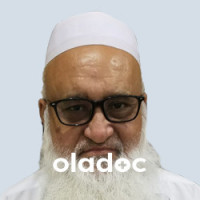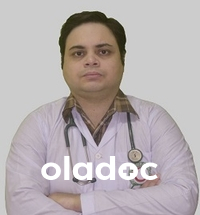People turn to Google for a medical diagnosis for one of three reasons: lack of time for a formal appointment, mistrust in a doctor’s diagnosis, and paranoia. Either which way, self-diagnoses are never suitable, since most people who decide to take matters into their own hands often end up complicating the issue rather than solving it. While the extra study is often appreciated by doctors, here are a few reasons to educate yourself but refrain from self-diagnosing; leaving it to the professionals instead:
1- Unnecessary Panic:
When we look up a particular symptom online, results on the 1st page often indicate a list of life-threatening ailments. People automatically assume that their headache or abdominal pain is a sign of a brain tumor or cancer, resulting in panic and hysteria, which, in itself, becomes a health issue. What most people don’t know it that search engines operate on a systematic mathematical program, in which articles with the largest page views are listed first, and since stories on terminal illnesses are usually more popular in the online readers’ community, that is the first thing people see when googling their symptoms; while the actual diagnosis usually proves to be far more mundane.
2- Unfounded Ease:
On the opposite end of the spectrum, many people, particularly those who are convinced that doctors ruin their health and waste their time and money through unnecessary testing and medication, look for excuses to write off their symptoms as something ordinary. When in fact, they could be a sign of something potentially serious.
3- Irrelevant Treatment:
While most are content with stressing over their self-assumed, deadly diagnosis, or simply irritating their doctors by asking to be treated for said diagnoses without a professional medical opinion, some go the extra mile and try to self-treat with natural remedies, OTC and prescription medication suggested by the internet, or insisting on unnecessary testing. Not only is it a waste of time, money and mental health, but since these treatments are generalized, they do not take individual health and medical history into account, often resulting in serious complications.
4- A Misdiagnosis:
People are easy to convince, which often results in potentially hazardous decision-making. For instance, constant headaches might be mistaken for an advanced-stage brain tumor, and convinced of their limited time left, some would choose drugs for pain management, which could grow into a serious substance abuse issue; with the headache still remaining. Similarly, what might appear as anxiety could actually be a heart condition that is left undiagnosed, resulting in serious complications.
5- Unreliable Sources:
The World Wide Web is an unregulated medium that does not require proof or crosschecks to allow someone to post health advice, making internet-attained diagnoses unreliable at best. The online wealth of information, while useful to gain knowledge on a particular subject, is either highly biased to a particular writer’s personal experience and medical history, or too generalized and might not work for everyone.
Inability To Accept A Professional Diagnosis
Other medical professionals can also fall prey to self-diagnosis. However, instead of resorting to the internet like the general populace, they either rely on their years of medical training to diagnose and treat their symptoms, or seek the help of other professionals, only to reject their opinions if it does not match theirs despite multiple testing. Usually a matter of professional pride, such practices often lead to undue stress in the best case and a possibly life-threatening misdiagnosis in the worst-case scenario.
The Takeaway:
An online diagnosis might or might not be correct. Either way, remember to discuss these findings with your doctor so they can be professionally proven or disproven, and trust that they are treating you in accordance with your personal and family health history. However, if you feel that your current doctor does not respect your personal opinions, look for a second opinion or a new healthcare provider, since an effective patient-doctor relationship is built on mutual respect and trust.
Is there a particular health concern you would like to discuss? Book an appointment with a top General Physician in Islamabad, Multan and Karachi through oladoc.com, or call our helpline at 042-3890-0939 for assistance to find the RIGHT Doctor for your healthcare issues.
















